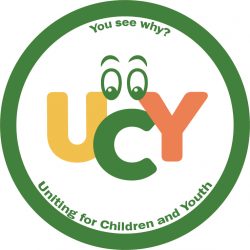Question 5 – Zone 12 Responses
Contents
The Question in brief
Responses from:
– Rawlson King
– Sandra Schwartz (Includes responses to questions 2-5)
The Question in Brief
What do you believe an OCDSB trustee’s role is re: promoting well-being in Ottawa public schools? (See full text of Question 5.)
Rawlson King
Addressing issues surrounding mental health and well-being must be driven by a new philosophical outlook. Our society has historically stigmatized “mental illness” and has ostracized those affected. I prefer to address the issue in terms of a spectrum of “mental wellness”. Not unlike our physical health, our mental health throughout our lives will be in flux, impacted by life’s happenstances. During our lives we can expect at times to be more physically healthy than at other times. The same is true of our mental health. When we experience challenges to our physical health, especially if acute, we typically obtain access to medical support quickly. When we experience challenges to our mental health however, our health and education systems often are ill-equipped to address the issue.
To its credit, our school board has developed a framework in its strategic plan to address student well-being. The OCDSB has adopted formal protocols to work with community partners when students experience a mental health crises. The school’s mental health framework also deals with promotion, prevention, early intervention and crisis prevention. Further, the school board has invested in specialized staff trained to deal with issues of safety, suicide prevention, grief, gender and family matters. Psychologists, social workers, guidance counselors and child and youth workers all work to support the needs of students at the school board, as well as teachers and principals.
Unfortunately, funding for this specialized staff is completely inadequate due to a lack of sustainable financial support from governments of all political stripes at Queen’s Park. I believe we need to be more aggressive during the school board’s budget process in allocating more resources required to help students with special needs, along with advocating more strongly for more resources from the provincial government to address the widespread “mental wellness” crisis affecting our children.
I think the school board will need to continue to undertake research into this crisis to find solutions to resolve the problem of inadequate resources. I am therefore gratified that the board is an active and current participant in an international OECD study on social and emotional skills, investigating 10- and 15-year olds’ social-emotional development. I think we should use the results of that study to determine the proper allocation of year-over-year funding levels needed to support students seeking help with improving their mental health.
I also continually hear from parents about the need for more educational assistants in the classroom to help their children deal with special needs, especially in cases of autism. I personally know families who have removed their children from district schools because they were not receiving the proper resources to assist their children in the classroom. I believe we must take concrete steps to obtain the funding to increase wellness and mental health supports in our schools.
In Ontario, 1 in 66 children and youth is identified with Autism Spectrum Disorder (ASD). Under the status quo, not much has changed: Children aren’t provided adequate autism support. Parents with financial resources take their kids out of the system. Parents who can’t afford to take their kids out of the system are faced with insurmountable challenges. The Ford government claims it will make an additional $38 million in funding available for all children with autism, above and beyond the funding promised by the Wynne government. Newly elected trustees will need to hold the new provincial government to account to ensure that it expands autism supports so more children and youth can access behavioural services, family supports and training.
While the provincial government has acknowledged that there has been inadequate investments to address the mental wellness crisis, I believe we need to strengthen our local response by reallocating budget dollars to invest in more personnel such as educational assistants, along with advocating for more dollars from the province to adequately address the challenge.
Sandra Schwartz (Responses to questions 2 – 5 included with this response.)
Question 2
1. Do you believe that public education needs to evolve from its industrial management practices to ones more appropriate for today? YES
2. Do you agree that formal scheduling is a major barrier to systemic innovation? NO. I do not believe formal scheduling is a barrier in itself. The larger issue is cultural and attitudinal barriers toward what innovation means in the education system. Leadership at the top of the organization is required to foster more innovation and creativity – educators need to feel empowered by senior staff to try new things and create better and deeper experiences for learning in our schools.
3. Would you act to establish an OCDSB Systemic Innovation Advisory Committee made up of student, parent, teacher, administrator, ministry, university professor, business and community representatives? YES. The OCDSB has several advisory committees. One focused on Systemic Innovation could assist the Board in bringing more innovation into the classroom. Furthermore, change should be incremental. Creation of an advisory committee could be the first step in a broader systemic change. However, the role and mandate of such a Committee along with a clear set of criteria to ensure an inclusive membership will be necessary.
4. If “Y” to #3, would you act to have the committee established in time for systematic field studies to begin in September 2019? YES. However, the proposed timeline may not be realistic in terms of establishing such a committee with a mandate, roles and responsibilities, terms of reference, etc.
5. Would you support developing a board wide inventory of innovative actions by teachers and principals? YES
6. Would you help to create partnerships with universities that want to conduct studies of how school boards can transition from the industrial model to one that suits today’s needs? YES. The OCDSB already actively engages with universities to conduct specific research projects in a number of areas.
7. Vision of the ideal school – Several years ago, I attended a seminar for educators on one of their professional development days. I was a school council Chair at the time, and the principal at the school thought it was important to have parents attend the event alongside teachers. Daniel Pink was the speaker and motivated the room to think differently about innovation and create new and better ways to solve problems.
As a parent, I believe that providing opportunities for unstructured play and independent learning are critical components for success. Recognizing that children are not all the same and have different learning styles, we need to focus our delivery of education on programs that support the differentiated learning needs of students. As I have witnessed with my own children, students are more engaged when they can pursue their individual interests within the curriculum.
Question 3 – What steps are you going to take to ensure that students feel they are heard in regards to their involvement in THEIR curriculum?
We need to listen to students and provide them with more opportunities to contribute their views on their education. I’m always inspired by the depth and breadth of comments and questions that come from our Student Trustees at the Board table.
On a personal note, I try to spend time in the classroom and always appreciate the insights students provide in terms of the issues they care about. I have attended several Civics classes as a guest speaker, both at the elementary and the secondary schools in my Zone, and have always focused my remarks on how government works, but more importantly, how their voices can be heard. A few weeks ago, I was so proud of the youth of the OCDSB who joined students from across the province on their “walk-out” ensuring the provincial government was made aware of their concerns with the rollback of the health and physical education curriculum.
Question 4 – In your opinion, is equitable, inclusive education important? Why or why not?
For the past four years I’ve sat on the Board, I have demonstrated my commitment to equity of educational opportunities and outcomes. I believe as a society, our success rests in our ability to respect, appreciate and value all people. Further, I believe the fundamental building blocks to a safe and caring school community are the relationships between administrators, staff, parents, students and the broader community. As leaders, it is up to us to ensure all individuals feel safe, valued, respected, and welcome. And when they don’t, we need to have processes in place to do something about it.
I am proud of the work we have done in the past four years to improve equity of access and opportunity for all students. We were unanimous in making Equity one of the five strategic priorities of the current Board of Trustees. That’s why I feel privileged to have been part of the selection committee for hiring the new Director of Education for the OCDSB. We were looking for a candidate that represented the progressive board we are. We wanted someone who was known for their creative and innovative leadership, and someone who is committed to equity, inclusion and human rights. Our new Director of Education embodies exactly these things. Leadership of the organization matters if we believe in the principles of equity and inclusion.
Question 5 – What do you believe an OCDSB trustee’s role is re: promoting well-being in Ottawa public schools?
I believe in always putting the interests of the students first. I will continue to stand up for the students I serve, and help families navigate the school system. There are a whole host of issues where improvements can be made to promote student achievement and well-being.
I am not an educator, but I believe that effective student learning happens when teaching strategies are adjusted in response to the students needs in a classroom, and experimentation by teachers and students is welcomed. In order to do this, it is vital that additional classroom supports are provided through the hiring of more educational assistants and other education workers. In addition, there is a clear need for more mental health workers to be hired by the OCDSB. As an incumbent trustee, during our annual Budget deliberations, I have supported increased funding in these areas and will continue to ensure these needs are met.
Furthermore, I am a strong believer in innovation and creativity in the classroom, including hands-on experiential learning tools and rewarding discovery, not just grades. I also think how a classroom is designed matters – for example, in some classrooms, I’ve seen teachers using exercise balls in place of chairs. Giving kids more learning time outdoors, such as extending the classroom outside also provides plenty of learning opportunities like counting mushrooms and plants, or just lifting rocks to see what lives underneath them. I’ve been advocating for more of our schools to adopt this model, where possible, as I think children benefit both physically and mentally from spending more time in nature, even if this is simply in a more naturalized school play yard.

